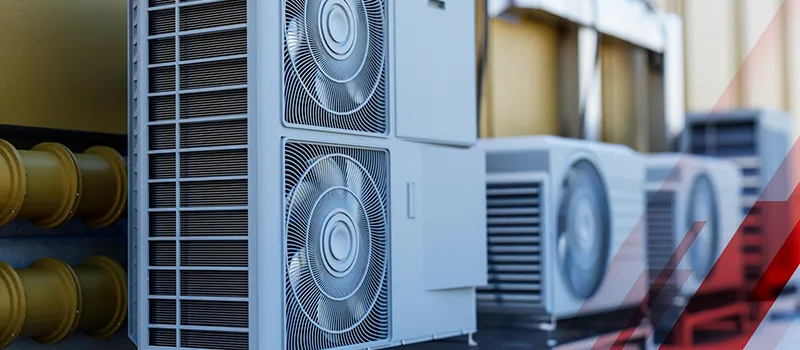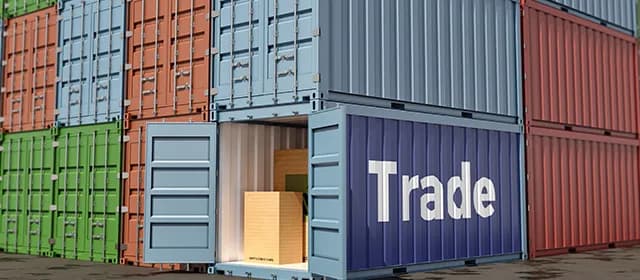We use a refrigerator to keep our food fresh and safe to eat. But have you ever wondered how these refrigerators work? In refrigerators, the refrigeration compressor serves as the heart of a refrigerator's operation. It's responsible for maintaining the proper temperature and ensuring food stays fresh and safe.
Let's dive into the cool world of refrigeration compressors, and take a closer look at these crucial components, exploring their creative innovations.
Understanding Refrigeration Compressors
Refrigeration compressors are vital components in the cooling systems of refrigerators. They have a significant impact on the functioning of refrigeration, heat pumping, and air conditioning systems. These mechanical units, commonly found in industrial settings, are specifically designed to handle large-scale operations.
As per Kings Research’s report, the refrigeration compressor market is expected to garner $29.56 billion in revenue by 2030, expanding at a compound annual growth rate (CAGR) of 5.37% from 2023 to 2030
Major Role of Refrigeration Compressors in Food Safety
Refrigeration compressors are used in the refrigeration process. The compressor's primary function is to receive this low-pressure gas from the evaporator and transform it into a high-pressure gas.
During compression, the gas becomes hotter, resulting in increased pressure and temperature inside the compressor. The high-pressure gas then moves into the condenser, where it returns to liquid form, releasing more heat and commencing the cooling cycle in the refrigerator.
This process is essential for keeping your food fresh, drinks cold, and the environment comfortable. The newly transformed liquid refrigerant is then directed to the expansion valve, which regulates and manages the flow of refrigerant in a low-pressure liquid state.
Key Benefits of Refrigeration Compressors That Will Keep You Chilling
The refrigeration compressor plays a vital role in circulating refrigerant within the refrigeration system. Unlike gas compressors, they are specifically designed for use within the refrigeration system and not for independent use outside of it. There are some differences in the working conditions between compressors used in refrigerating machines and those used in general-purpose applications.
- It operated within a wide range of suction and discharge pressures.
- Refrigerants often dissolve oils, leading to compressor lubrication problems.
- Aspirated steam has a low temperature and can contain liquid droplets.
- Refrigerants can condense in the cylinder due to intensive cooling.
- Refrigerants are typically fluid and highly permeable.
- Refrigerating compressors encounter rising requirements in terms of reliability, longevity, and efficiency.
In refrigeration compressors, various types of air supply are used, including positive displacement and kinetic energy. The air supply in these compressors facilitates the cooling process and ensures efficient operation.
What’s New in Refrigeration Compressor Technology?
1. Innovative CO2 Compressor
Officine Mario Dorin S.p.A. has introduced its largest CO2 compressor platform, the CD600 range, which includes models up to 100 hp and 98.58 m3/h. This innovative platform doubles the refrigeration duty deliverable with a single compressor, allowing for the cost-effective and efficient application of CO2 in large industrial applications.
The CD600 range is packed with automotive engineering solutions, including an external discharge manifold that offers a longer compressor lifetime, higher efficiency levels, and a lower oil and discharge temperature. The CD600 range is interchangeable with the CD500, allowing easy assembly and disassembly of the refrigeration system. It also features lower oil carry-over, wider operating envelopes, improved performances, and an increased maximum discharge temperature of 160°C. The CD600 Dorin range is a valid and secure alternative to ammonia, promoting a sustainable future for the planet.
2. Eco-friendly low-GWP refrigerants
The refrigeration industry has seen few innovations over the last four decades, with existing compressor technology being favored due to regulatory requirements such as the UK and EU's 2020 F-Gas ban. As a result, the use of high-GWP refrigerants was prohibited. However, low-GWP refrigerants require high-pressure ratios and extremely high absolute pressure for effective compression.
To address this issue, companies like Vert Technologies are working on projects with refrigeration companies to incorporate low-GWP refrigerants into their products.
Their conical rotary compressor (CRC) solution has shown significant pressure, efficiency, and flow capabilities, with efficiency savings of more than 30% in air compressor mode over the last two years. The CRC's design and software, a collaborative effort with OEM partners, utilize a single rotor for high pressures, low noise, and low vibration, optimizing its geometry for various applications.
3. Energy-Efficient ‘Delta’ Compressor
ACC, a European company, is dedicated to R&D and product innovation, focusing on setting new standards in product performance and technological solutions for domestic electric appliances and anticipating future market trends.
The company promotes safe, energy-efficient, and environmentally friendly appliances, with ISO 14001 certification and compliance with international legislation. ACC has won the Austrian National Award for Innovation for its energy-efficient "Delta" compressor.
This 'Delta' compressor is specially designed for domestic refrigeration, offering energy efficiency, performance, and eco-friendliness. This compact, top-performance product reflects ACC's commitment to environmental protection and consolidated experience.
4. Unique Cooling Capacity Compressor
Embraco, a well-known player in the refrigeration technology industry, aims to manufacture a large quantity of two brand-new compressors for household refrigeration. This move will cater to the needs of both residential and commercial cold chains. The ES and FMS compressors are designed to reshape the future in these areas, combining innovation, energy efficiency, and environmental sustainability with a unique cooling capacity and size.
The FMS is a compact, high-capacity variable speed compressor with a 265W capacity, operating on R600a natural refrigerant, offering significant energy savings and reducing ozone depletion potential.
The ES is a fixed-speed compressor suitable for various applications, from water coolers to distinctive residential refrigerators. It is 155 millimeters tall, 11% smaller than the EM3, and runs on natural refrigerant R600a, supporting the migration to natural refrigerants on the American continent.
What’s Next in Refrigeration Compressor Technology?
Refrigeration compressors are a crucial component of our cooling systems. With the latest advancements in compressor technology, we can rest easy knowing that our refrigeration systems are more efficient, reliable, and powerful than ever before.
Additionally, we may see a shift towards more sustainable and eco-friendly refrigerants, as concerns over climate change and ozone depletion continue to grow. Overall, the future of refrigeration compressors is exciting and promising, with endless possibilities for innovation and improvement.




